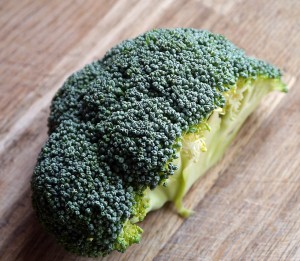
They come and go seemingly without warning.
You’ve had your fair share of unpleasant experiences with them. Yet, even after carefully monitoring your habits and trying to avoid the usual pitfalls, they’re impossibly difficult to pin down, let alone resist.
Cravings are a form of “selective hunger” that, regardless of physiological energy needs, lead to overeating, binge eating, and in some cases to a broken relationship with food.
Demonized by mainstream media and misunderstood by most individuals, cravings have been at the receiving end of many cursing episodes. Cravings are not the enemy, however. They are your body’s way of communicating nutritional deficiencies and/or systemic imbalances.
Read on to find out how to distinguish actual hunger from cravings and how to regain control of your eating habits once and for all.
-
Stop eating clean
When people go on diets, they tend to excessively restrict energy intake and food variety, thus facilitating cravings and uncontrollable binge eating episodes. If you’ve ever been on a diet, you know exactly what I’m talking about.
I’m here to tell you that clean eating is nothing but a fairy tale. You can eat the foods you love (yes, ice cream too) and still look like a cover model. You just have to know how to do it.
 The proper balance of vitamins, minerals and trace elements is essential to your performance and well-being. Are you eating the same meals every day? Are you consciously limiting or avoiding entire food groups? Are you getting enough minerals and vitamins in your diet? Are you covering all bases?
The proper balance of vitamins, minerals and trace elements is essential to your performance and well-being. Are you eating the same meals every day? Are you consciously limiting or avoiding entire food groups? Are you getting enough minerals and vitamins in your diet? Are you covering all bases?
Excessively restricting foods or macronutrients will backfire on you. Be smarter than that. Start tracking your macros and/or consciously reduce portion sizes if you want to lose weight.
A balanced, nutrient-dense diet is your first line of defense against cravings and uncontrollable weight fluctuations, but you do not have to limit yourself to supposed healthy or clean options.
Eat a variety of foods, and make sure to get a good balance of protein, fats and carbohydrates.
-
Distinguish between hunger and cravings
It is critical to differentiate between true hunger and mere cravings.
Hunger for protein foods and whole food fats indicate a need for nutritional energy. This becomes especially apparent in times of dieting or malnutrition. You’d likely opt for a piece of meat, nuts and some cheese, over a bag of Cheetos and a can of soda when you’ve been in a calorie deficit for a while.
If, on the other hand, you lust for gummy bears and bacon flavored chips all day, you’re witnessing sugar/ carb cravings sparked by inadequate nutrition and lifestyle habits.
 Cravings for sugary desserts and carb-rich snacks also indicate poor glucose regulation. Do you always feel like you need to finish your meals (no matter how big) with a dessert? Your body might be having difficulties shuttling glucose into the cells. Your system is flooded with sugar but you feel like you need more energy, more sugar.
Cravings for sugary desserts and carb-rich snacks also indicate poor glucose regulation. Do you always feel like you need to finish your meals (no matter how big) with a dessert? Your body might be having difficulties shuttling glucose into the cells. Your system is flooded with sugar but you feel like you need more energy, more sugar.
Hormonal irregularities are also known to trigger cravings and poor food choices. Learn to tell the difference between hunger and cravings, and respond accordingly.
I rarely experience severe hunger. As long as I eat the right foods for my body, and I eat enough, I don’t encounter such unpleasantness. With that being said, I do occasionally crave chocolate, ice cream and other high energy foods, especially in times of heavy physical training.
But in contrast to most health nuts out there, I make sure to incorporate these supposed “bad” foods into my diet. In moderation (sometimes) and balanced with nutritionally dense whole foods. I suggest you do the same if you ever want to have a healthy relationship with food and your body.
Cravings cannot be fully eliminated as they are a natural response to acute or chronic conditions. By eating better and adhering to a few basic lifestyle principles, however, you can greatly reduce their frequency and intensity.
-
Discipline yourself
Eating is essential to our survival. But more than that, it plays a leading role in our social lives and mental well-being. The pleasures associated with eating and the concomitant social experiences have brought people together for millennia.
We always talk about the impacts of nutrition on our physical health, while rarely touching upon its overarching influence on our lives.
Do not underestimate the role of food on mental health.
Evolution taught us to eat when food was available. In today’s age of abundance, however, we need to turn to other advisors. I have to chuckle when I hear people say things like, “Your body will tell you how much to eat…“, “Just eat when you’re hungry…”
Really?
I’m all for working with your body, but this particular advice hasn’t really served us well over the last few decades, has it? I mean just take a look outside your window.
What you have to understand is that the foods we eat today are meticulously designed to trigger cravings and make us overeat. The high fat, high sugar foods, dominating the western diet are impossibly difficult to resist.
I’m not going to ramble on about the “evil food industry” and how it’s trying to kill us, as you can read that kind of fear-mongering bullshit everywhere else. It’s simply a business, and you’re the consumer. Deal with it.
Instead of blaming the industry or the foods themselves, take matters into your own hands. The choice is still yours. You don’t have to succumb to cravings or food marketing. You are the captain of your ship.
Discipline yourself. Eat at regular mealtimes. Mostly whole food. No snacking. The end.
Craving control:
- Don’t excessively restrict food sources, macro-nutrients and pleasure
- Learn the difference between hunger and cravings
- Take responsibility for your food choices
Establish a routine, be consistent and watch the cravings and constant “hunger” dissipate.
I can talk all day about the importance of proper food and lifestyle choices, but the truth is, the buck stops with you. If you read this and decide to incorporate a few of these strategies into your regimen, good for you.
Go out there and do what you set out to do. Also, make sure to give me a heads up on how things are working out.
I’ll talk to you soon.
Thank you for reading
Victor
Resources
Asarian, L./
Ronzio, R.A. (2003). Craving. The Encyclopedia of Nutrition and Good Health. 2nd edition. Facts on File. p. 176.
Yanovski, S. (2003). Sugar and Fat: Cravings and Aversions. The Journal of Nutrition 133 (3): 8355–8375.
Deine Bilder sagen mir immer sehr zu